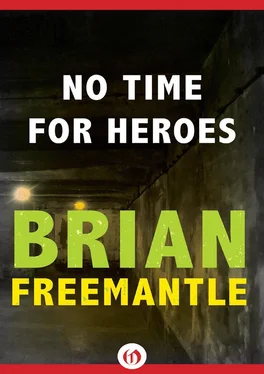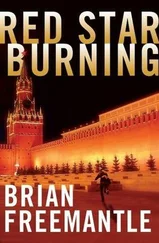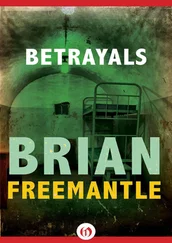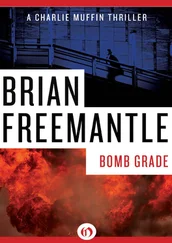Brian Freemantle - No Time for Heroes
Здесь есть возможность читать онлайн «Brian Freemantle - No Time for Heroes» весь текст электронной книги совершенно бесплатно (целиком полную версию без сокращений). В некоторых случаях можно слушать аудио, скачать через торрент в формате fb2 и присутствует краткое содержание. Жанр: Триллер, на английском языке. Описание произведения, (предисловие) а так же отзывы посетителей доступны на портале библиотеки ЛибКат.
- Название:No Time for Heroes
- Автор:
- Жанр:
- Год:неизвестен
- ISBN:нет данных
- Рейтинг книги:5 / 5. Голосов: 1
-
Избранное:Добавить в избранное
- Отзывы:
-
Ваша оценка:
- 100
- 1
- 2
- 3
- 4
- 5
No Time for Heroes: краткое содержание, описание и аннотация
Предлагаем к чтению аннотацию, описание, краткое содержание или предисловие (зависит от того, что написал сам автор книги «No Time for Heroes»). Если вы не нашли необходимую информацию о книге — напишите в комментариях, мы постараемся отыскать её.
No Time for Heroes — читать онлайн бесплатно полную книгу (весь текст) целиком
Ниже представлен текст книги, разбитый по страницам. Система сохранения места последней прочитанной страницы, позволяет с удобством читать онлайн бесплатно книгу «No Time for Heroes», без необходимости каждый раз заново искать на чём Вы остановились. Поставьте закладку, и сможете в любой момент перейти на страницу, на которой закончили чтение.
Интервал:
Закладка:
‘We know who they are: what they look like,’ declared Melega. ‘They’re trapped: there’s no way they can possibly escape.’
That night Cowley drank more than he had for a long time, although he still did not get badly drunk. At an early stage he said to Danilov: ‘Nervous?’
‘Yes.’
‘Melega’s right. We’ve got them.’
‘Not yet.’
‘It’s been good, working with you again.’
Danilov, who had not drunk as much, was curious at the maudlin tone. ‘It’s a long way from being over yet.’
‘But then it will be,’ said Cowley, even more enigmatically. He was still drinking, with the willing Patton, when Danilov went to bed.
They were later to decide the following day’s surveillance – and with it the whole operation – might well have been wrecked but for the helicopters. It began smoothly enough. The Mafia group left the President Hotel just before ten and set off eastwards along the coast road, with Amasov at the wheel of the Fiat. Within fifteen minutes of their departure, there were four cars alternating the pursuit, with Melega, Danilov and the three Americans staying well behind and out of sight in the fifth, one of the vehicles brought over from the mainland specifically to act as the command car through its complete range of radio and telephone equipment. From it Melega ordered six more cars on to the road, but with instructions to remain behind them until summoned to replace the closer police vehicles before they became suspiciously noticeable. Just outside Termini one of the immediate surveillance cars radioed back that the group had stopped for coffee. Melega immediately halted their vehicle and made his first change, switching one of the rear cars with one in front.
‘Sightseeing?’ queried Smith.
‘These guys don’t waste time on scenery and ancient monuments,’ said Patton.
The cavalcade resumed after thirty minutes, continuing eastwards. At once Melega began a rapid conversation in Italian, swivelling and then ducking in his front seat to make it easier to look upwards. Within minutes, without explanation, he pointed and said: ‘There!’
The helicopter was painted an orange yellow. The side doors were open and it was flying so low, parallel to the coastline, they could clearly see the crew. Patton and Smith looked, horrified, at one another: Patton shrugged, to Cowley. Melega saw the gesture and smiled, unoffended. There was a babble of incoming Italian on the radio, then abruptly a more blurred reception overlaid with the engine noise of the helicopter. The machine was briefly lost from sight, far ahead, and then soared into view again, climbing high before banking out to sea and completing its turn westwards to go back towards Palermo.
‘Wasn’t that…?’ began Cowley dubiously, but Melega raised his hand, stopping the American to listen to another incoming report.
The Italian gave a satisfied head movement. Turning to the rear, he said: ‘They’ve gone off the coastal highway, inland. The mountain road is good, but we couldn’t sustain a pursuit all the way across to Catania without being picked up. And certainly not if they went off the main road, to any of the villages.’
‘So how we going to do it?’ demanded Patton.
‘Call off all the vehicles, until we might need them,’ said Melega simply. ‘The new pursuit car radioed the number of the Fiat to the helicopter they were meant to see: it’s an air-sea rescue machine, by the way. The colour was essential for the real observer machine, as a marker. The climb you saw was directly level with the Fiat, identifying it for the helicopter you can’t see – and which is flying overhead too high for them to see or hear, either.’ He gave another satisfied smile. ‘Not far in from the coast there’s a little town called Sciara. The restaurant is very good there.’
They did not go there in the antennae-festooned command car, transferring instead at Imerese into two ordinary-looking vehicles to arrive separately at Sciara, where they attempted to eat, but with little appetite, eel and mullet and grouper: no-one drank anything but mineral water. Patton’s hand kept straying beneath the concealment of the table to the Smith and Wesson on his hip: the man had manoeuvred the seating with his back to a wall, which Danilov thought ridiculous. None of them – apart from Melega – relaxed, each feeling cut off and inadequate without access to the radio telephone and their constant monitor. Melega promised there were other helicopters to airlift them as well as carabinieri anywhere in the mountains a meeting with the Sicilian Mafia might be seen from existing, spy-in-the-sky surveillance, but no-one was reassured. Patton’s stomach began to echo, audibly: he apologised for an ulcerous condition.
Melega had a disjointed conversation on a handset driving back towards the coast, but did not get a full account until he talked from the command car. ‘Villalba,’ he announced. ‘It’s about seventy kilometres inland: maybe a little more.’ He looked up from a map. ‘We risked one car: a policeman and policewoman, supposedly lost tourists needing re-direction. Palma and the Russians drank in the only bar but didn’t eat. They didn’t meet anyone, while my two were in the bar. The helicopter saw Palma and the Russians walk to a farmhouse on the outskirts of the village. From the condition of the ground and the outhouses, it looks deserted. The four of them walked around but didn’t go inside. They’re on their way back this way.’
‘A reconnaissance,’ Smith decided.
‘Which it always had to be,’ said Melega.
‘A small village?’ prompted Cowley, anticipating the problem from his earlier posting in Rome.
‘Everybody will know everybody else,’ confirmed Melega. ‘We can’t do anything in advance. The two who did go in say the place stinks Mafia. If we go anywhere near it again, in advance, nothing will happen.’
‘Like the wise man said,’ reminded Patton. ‘Life ain’t easy.’
He’d never thought it was, reflected Danilov.
CHAPTER FORTY-SEVEN
The evening conference unanimously concluded the operation depended heavily upon helicopters: three more twin-rotored Chinooks with a carrying capacity of twenty men each were allocated overnight, making eight in all. Melega additionally increased their manpower by having a fifty-strong army unit seconded to them, completely to seal every route – even mountain tracks – leading to and from Villalba. The Italian agreed with Cowley that such a build-up on the island stretched the security risk beyond breaking point, so the unit and their helicopters were held at Reggio di Calabria, on the mainland just across the narrow Straits of Messina.
That night there was not a lot of drinking and no-one slept well: Danilov was up before seven, and when he got to the breakfast room he found Cowley already there. Smith and Patton arrived within minutes. No-one ordered anything but coffee.
‘It might not be today,’ said Smith.
‘But then again it might,’ said Patton.
‘I hope it is today,’ said the FBI man. ‘I want to get it over.’
‘I want to get it right,’ qualified Cowley, ‘It’s a bastard not being able to set up anything in advance: I want a wire in that farmhouse, listening to every goddamned word.’
‘Which we’re not going to get,’ deflated Danilov, realistically. He was still worried about exactly what they were going to get, even if they made the arrests. Would the Federal Prosecutor formulate a charge under the Russian criminal code to get the three extradited back to Moscow, or would he leave them to Italian jurisdiction and prosecution?
When Melega came in it was from the street, not from his upstairs room. ‘They’re already up,’ he announced. ‘According to my people, they’re not as relaxed as they were yesterday.’
Читать дальшеИнтервал:
Закладка:
Похожие книги на «No Time for Heroes»
Представляем Вашему вниманию похожие книги на «No Time for Heroes» списком для выбора. Мы отобрали схожую по названию и смыслу литературу в надежде предоставить читателям больше вариантов отыскать новые, интересные, ещё непрочитанные произведения.
Обсуждение, отзывы о книге «No Time for Heroes» и просто собственные мнения читателей. Оставьте ваши комментарии, напишите, что Вы думаете о произведении, его смысле или главных героях. Укажите что конкретно понравилось, а что нет, и почему Вы так считаете.












